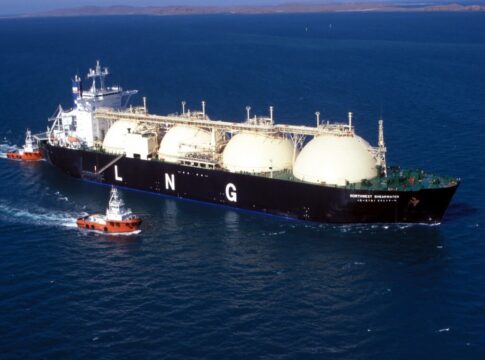Egypt has issued an urgent tender to import nearly 2 million tons of fuel oil for use in power generation, industry sources confirmed to Bloomberg.
The tender, led by the Egyptian General Petroleum Corporation (EGPC), aims to cover domestic energy needs for May and June, as global liquefied natural gas (LNG) prices hover near $12 per million British thermal units (MMBtu) — a level that renders spot purchases economically unviable for many emerging markets.
The move signals a broader recalibration of Egypt’s energy strategy — prioritizing fuel oil, despite its environmental downsides, to ensure uninterrupted electricity supply during the high-demand summer months.
“While fuel oil is less clean, it is often more predictable in cost and supply during price surges in the LNG market,” explained Dr. Hisham El-Ghazaly, a Cairo-based energy economist and former advisor to the Ministry of Electricity. “Egypt is effectively buying time to restructure long-term LNG deals.”
According to energy trading sources, Egypt’s state-owned energy firms have stepped away from the spot LNG market in recent months. Instead, they are favoring bilateral deals that provide greater pricing stability — particularly as the global gas market remains tight due to sustained Asian demand and geopolitical disruptions in shipping routes.
“It’s a smart hedge. The volatility in the LNG spot market post-Ukraine war has prompted many countries to rethink short-term exposure,” said Katarina Lund, Senior LNG Analyst at Gulf Energy Insights, based in Abu Dhabi. “Egypt is not alone; even large importers like India and Pakistan are renegotiating long-term supply frameworks.”
Sources close to the matter revealed that Egypt is currently in negotiations with international LNG suppliers to lock in multi-year contracts covering 2028 to 2030. The aim is to insulate Egypt from future market volatility while retaining the flexibility to adjust demand.
These long-term deals reportedly include adaptive clauses — allowing Egypt to revise delivery volumes in line with domestic production, demand fluctuations, or geopolitical shifts. “This gives Egypt optionality — crucial in an uncertain market,” noted a senior official at EGAS, speaking on condition of anonymity.
Any additional LNG volumes beyond the fixed terms of these contracts are expected to be acquired through independent purchase tenders, the source added.
Although Egypt has made significant strides as an Eastern Mediterranean gas hub, its domestic gas production has plateaued in recent years. With the Zohr field maturing and no major new finds since 2018, Cairo is recalibrating its expectations.
“Production is flat, demand is rising, and regional exports are a political priority,” said Dr. Noha Ragab, Research Fellow at the Egyptian Center for Energy Futures. “To avoid domestic shortages, Egypt must be agile — and fuel oil offers that short-term agility.”
The shift back to fuel oil raises eyebrows among climate advocates. Egypt, which hosted COP27 in 2022, had pledged to reduce its reliance on heavy hydrocarbons. However, government officials maintain that energy security in the short term must take precedence over decarbonization goals.
“Until Egypt secures flexible, affordable LNG flows and scales up renewables, it must use all tools at its disposal — even if they aren’t green,” argued a senior policy advisor at the Ministry of Petroleum, speaking under condition of anonymity.
With summer approaching and air conditioning demand set to spike, energy stability is non-negotiable for Cairo. This fuel oil tender is just one piece of a broader puzzle as Egypt seeks to juggle economic realities, geopolitical dynamics, and environmental commitments.
For now, officials are walking a tightrope between meeting immediate power needs and planning for a more stable, diversified energy future.


